Literature
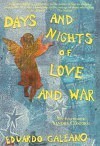
Days and Nights of Love and War is the personal testimony of one of Latin America’s foremost contemporary political writers. In this fascinating journal and eloquent history, Eduardo Galeano movingly records the lives of struggles of the Latin American people, under two decades of unimaginable violence and extreme repression. Alternating between reportage, personal vignettes, interviews, travelogues, and folklore, and richly conveyed with anger, sadness, irony, and occasional humor, Galeano pays loving tribute to the courage and determination of those who continued to believe in, and fight for, a more human existence. | more…
Pier Paolo Pasolini, born in Bologna on March 5, 1922, and raised in the Friuli region of Venetia, is, in the words of Alberto Moravia, the major Italian poet of the second half of the twentieth century. He was also a filmmaker, novelist, and political journalist of genius. He was murdered twenty years ago, on November 2, 1975. | more…

Brings together essays on literature, the plastic arts, theater, and music, which stand with the best of modern criticism. | more…
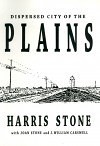
Town-building in the Great Plains gets a fresh examination in Harris Stone’s final book. Form and consequences of the inhabitation of the plains landscape are explored, from the rural roads and farms to industrial parks. Beautifully hand-lettered and illustrated throughout, this thought-provoking work will appeal to architects, planners, historians, cultural geographers, and anyone interested in the interplay between people and vernacular form. | more…

For all those interested in the relationship between the memories that permeate the built forms of the past and the pressures exerted by modern life, Harris Stone offers a richly illustrated examination of the seemingly irreconcilable opposition between action (hands-on) and scholarship (hands-off) — between those who want to preserve the past as a museum of dead relics and those who want to treat it as a part of contemporary life. | more…
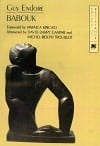
Loosely based on the Haitian slave insurrection of 1791, Babouk is a biting account of colonialism at its peak. By using the imagination of the novelist to fill in the gaps in the historical record, Endore is able to show us how slavery felt to the slaves who experienced it. His novel is rare for its depiction of the shared history of the slaves and its attention to the variety of the slave experience. It provides the reader with a vivid history of Haiti and a compelling account of slavery and rebellion. | more…
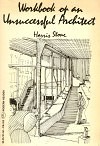
“As a socialist, Mr. Stone explains in terms that architects can understand and with examples which architects know from their own experiences, what it is to be dedicated to the Left in a world dedicated to the Right, to the Centre or to the self. He explains how producers of raw materials and products are able to influence public action in their interests rather than that of the community in the name of progress, renewal, slum clearance, and the American way-of-life… His drawings are a joy. It is clear that Mr. Stone is unsuccessful not in his terms but in ours because he has refused to be a corporate spear-carrier.” — The Canadian Architect | more…

In 1938, a year after his death in Spain at the age of thirty, Christopher Caudwell’s Studies in a Dying Culture was published, to be followed eleven years later by a second volume, Further Studies in a Dying Culture. This volume makes available both important works by one of the foremost Marxist critics of the thirties. | more…

Tressell’s great working-class novel. | more…
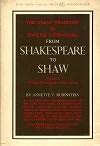
This is an illuminating interpretation of the life and work of twenty-two major literary figures during three hundred years of English literature. It reveals how they were rooted in the political and social movements of their own time, with representative selections from their writings. In two volumes. | more…








